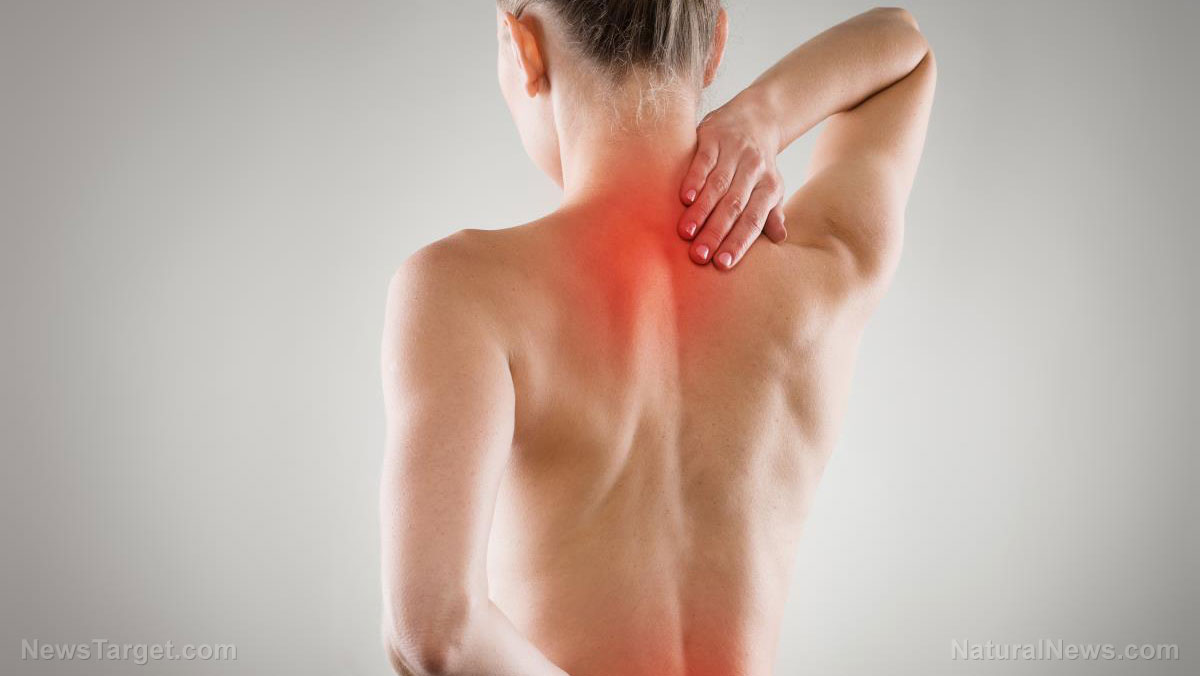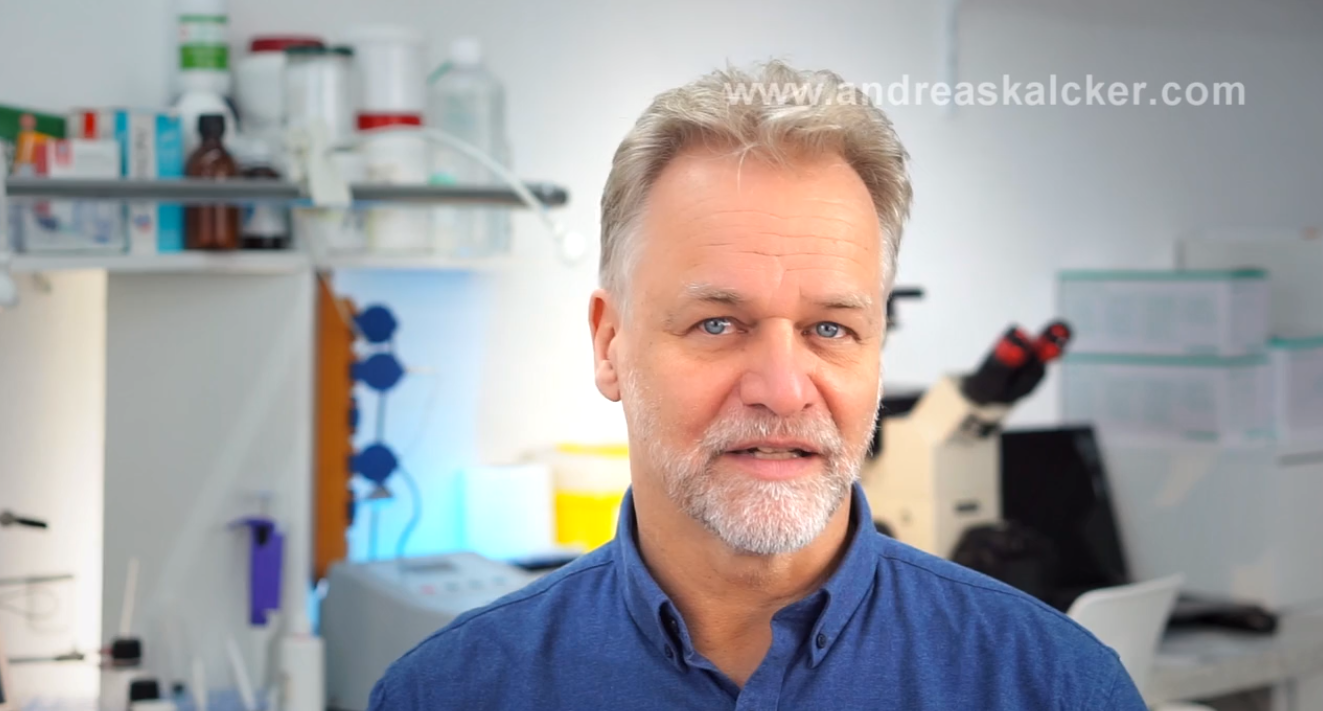9 Natural ways to relieve and prevent back pain
06/16/2020 / By Zoey Sky

Upper back pain is an uncomfortable symptom with several causes, such as arthritis, injury or bad posture. While the pain can make you reluctant to move and stay active, one of the best ways to relieve your condition is through stretching exercises or treatments like acupuncture.
Common causes of upper back pain
Upper back pain may occur anywhere from the base of your neck to the bottom of your rib cage. This type of pain isn’t as common as lower back pain or neck pain since your vertebrae don’t flex or move like the bones of your lower back and neck.
Below are some of the common causes of upper back pain:
- Arthritis – Some kinds of arthritis, such as spinal arthritis, can cause pain and stiffness in your neck, shoulders and upper and middle back.
- Compression fractures – If a vertebral bone weakens, it may not be able to fully support the weight above it. This can eventually cause bone fractures and upper back pain.
- Fibromyalgia – Fibromyalgia often develops due to the overuse or de-conditioning of your muscles. It can cause pain and fatigue throughout your body, but it usually affects your upper back.
- Injury – Injuries like a sudden fall or being hit hard on the back can cause upper back pain.
- Muscle overuse – Putting too much strain on your upper back, like carrying a heavy backpack on just one shoulder, lifting something too heavy or repetitive throwing, bending or twisting can also cause upper back pain.
- Poor posture – Being sedentary or sitting for a long period of time in a slumping or slouching position may cause structural changes in your back or neck.
- Severe spinal deformity – If a spinal deformity like scoliosis is left unchecked and has progressed enough, it may cause painful muscle spasms and stress in your discs and joints.
- Thoracic herniated disc – A herniated disc can cause nerve compression, which may result in upper back pain.
Natural ways to address upper back pain
There are several ways to treat upper back pain without taking medication. Some of these include lifestyle changes while others are natural treatments that will help relieve pain.
Acupuncture
Acupuncture is a traditional therapy that involves putting tiny needles into your skin at a certain area or meridian to help relieve pain and promote healing.
Acupuncture helps release neurotransmitters, or the hormones that send messages controlling the “on/off” mechanisms of many nerve endings. Acupuncture can help stimulate some of these neurotransmitters that shut off pain.
Some studies suggest that acupuncture can trigger electromagnetic impulses in your body that may help with how your body handles pain, like releasing endorphins.
Exercise and stretching
Mild exercise like walking or non-contact sports can help stretch and strengthen the muscle group that supports your mid-back and can help ease upper back pain. (Related: Exercise is the best natural remedy for back pain.)
You can also try stretching exercises and activities like cycling or swimming, both of which are often recommended to address upper back pain. Pilates and yoga may also help relieve upper and middle back pain.
Ice pack or warm compress
Ice or heat will help relieve stiffness and pain in your upper back. Apply an ice pack to reduce swelling within the first couple of days of the pain.
Apply a warm compress at least 48 hours you experience pain in your upper back.
Improve your posture
Sit properly; don’t slump or slouch.
When lifting heavy objects, lift close to your body, keep your feet shoulder-width apart, then bend your knees and keep your back straight. Tighten your stomach muscles, lift with your legs and don’t twist or bend your body unnaturally. If you’re struggling, ask for help with lifting the object so you don’t hurt yourself.
Manage your stress
Try natural ways to manage your stress like deep breathing, meditation and relaxation exercises. Keeping your stress levels manageable may also help you manage your upper back pain.
Massage
Having a massage may help loosen any tight muscles and promote blood flow to your upper back.
A study in the journal Annals of Internal Medicine suggests that massage therapy and traditional treatment helps minimize back pain, improves back function, reduces use of anti-inflammatory medications and lessens days spent in bed.
Modify activities and rest
If certain kinds of activities aggravate your upper back pain, take some rest. Don’t push through the discomfort because this can make your condition worse.
After you rest, try and continue the activity. If you still experience pain after resting, consider avoiding the activity until your condition improves.
Quit smoking
Research has found that smokers have a higher chance of developing chronic back pain as the habit is linked to the accelerated degeneration of spinal discs.
Sleep in a comfortable bed
Sleep in a comfortable bed and in the proper position to reduce upper back pain. Lying down on an uncomfortable bed may cause stiffness in your back.
Relieve upper back pain naturally with gentle stretching exercises. You can also try alternative treatments like acupuncture or massage for natural pain relief.
Sources include:
Submit a correction >>
Tagged Under:
back pain, exercise, fightobesity, fitness, home remedies, Natural Treatments, pain relief, physical activity, posture, prevention, regular exercise, research, slender, stretching, upper back pain
This article may contain statements that reflect the opinion of the author
RECENT NEWS & ARTICLES
COPYRIGHT © 2017 PREVENTION NEWS





















